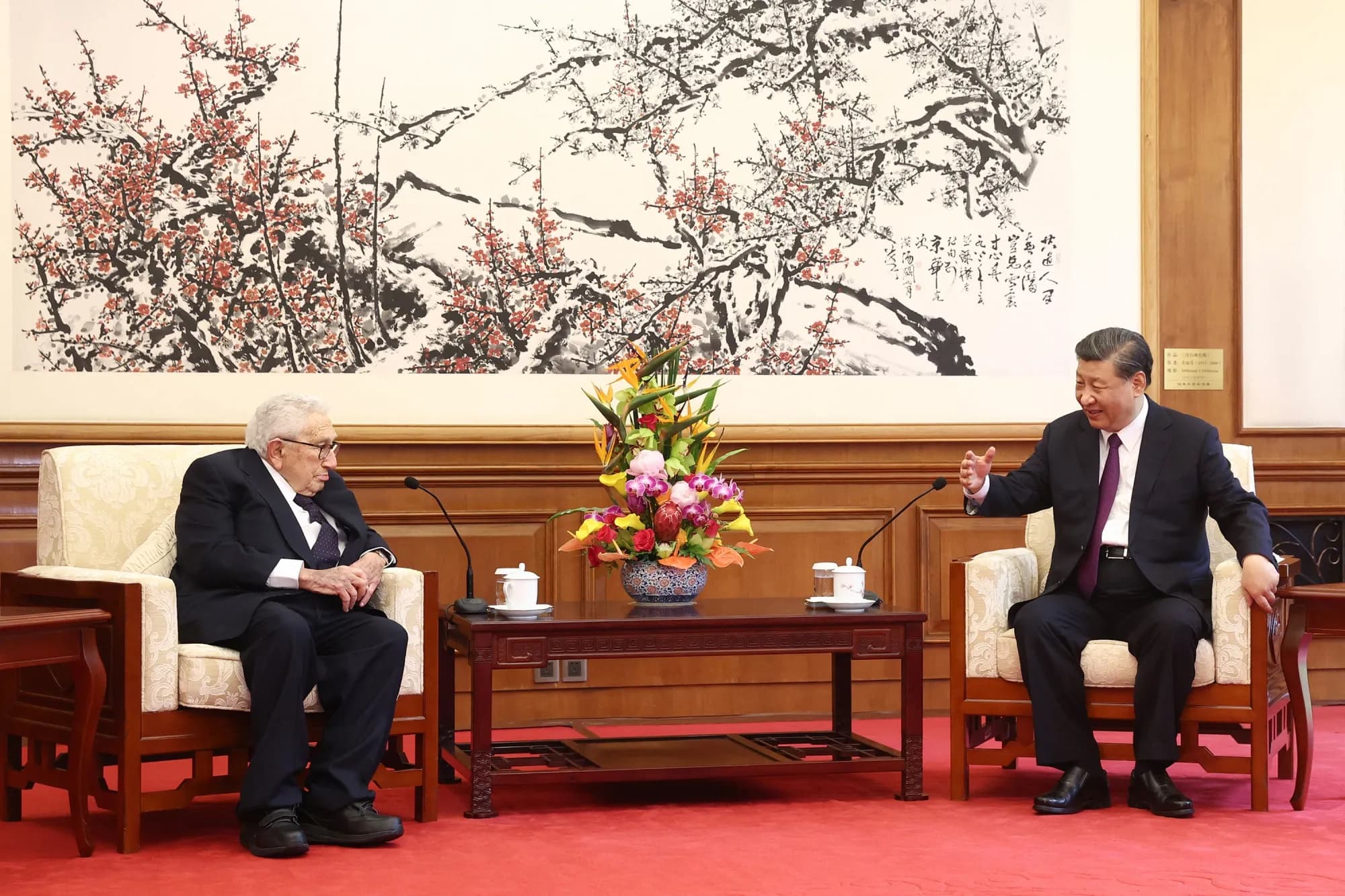We're loading the full news article for you. This includes the article content, images, author information, and related articles.
Kenya, a significant recipient of Chinese investment and loans, faces potential ripple effects as China's economic growth decelerates amidst trade tensions and property market challenges. This slowdown could impact Kenya's export markets and debt sustainability.

China's economy expanded at its slowest pace in a year during the third quarter of 2025, a development closely watched in Kenya due to the East African nation's deep economic ties with Beijing. Gross Domestic Product (GDP) grew by 4.8% year-on-year between July and September, a notable decrease from the 5.2% recorded in the second quarter of the year. This deceleration is attributed to a confluence of factors, including an ongoing trade dispute with the United States and persistent challenges within China's vast property market.
The slowdown highlights China's fragile domestic demand, which has left its economy heavily reliant on manufacturing and international trade. This reliance comes at a time of escalating tensions with the administration of former US President Donald Trump, which has imposed tariffs on Chinese goods. Kelvin Lam, Senior China+ Economist at Pantheon Macroeconomics, noted that "September activity data showed continued weakness in domestic demand, partly due to poor business and household confidence."
Investment growth in China has also slowed, with property investment experiencing a significant decline of 13.9% year-on-year in September, following a 12.9% fall in August. Consumer demand remains muted, with real growth in retail sales sharply decelerating to 3.5% from 4.1% previously. These figures underscore a broader economic cooling that could have global ramifications, including for countries like Kenya that are closely linked to China's economic fortunes.
Kenya has forged extensive economic partnerships with China over the past two decades, encompassing trade, infrastructure development, and significant loan agreements. China is a major trading partner for Kenya, importing various goods and providing a substantial source of foreign direct investment. Furthermore, Chinese financing has been crucial for large-scale infrastructure projects in Kenya, such as the Standard Gauge Railway (SGR). According to the National Treasury of Kenya, China remains one of Kenya's largest bilateral creditors.
A sustained economic slowdown in China could present several risks for Kenya. Reduced demand for Kenyan exports in the Chinese market could impact local industries and agricultural sectors. Additionally, a weaker Chinese economy might lead to a decrease in new investments in Kenya, potentially affecting job creation and economic growth. Concerns also exist regarding Kenya's debt obligations to China. While the Kenyan government has consistently affirmed its ability to service its debts, a prolonged Chinese economic downturn could introduce new complexities to these financial arrangements.
The full extent of the impact of China's economic slowdown on Kenya remains to be seen. Key uncertainties include how long the slowdown will persist, the future trajectory of US-China trade relations, and the specific policy responses from Beijing to stimulate its economy. Kenyan policymakers will need to closely monitor these developments and assess their potential implications for the national economy, particularly concerning trade diversification and debt management strategies.
Observers will be keenly watching China's upcoming economic data releases, particularly those related to industrial output, retail sales, and fixed-asset investment, for signs of recovery or further deceleration. The ongoing discussions between the US and China regarding trade will also be critical. In Kenya, attention will be on the government's fiscal policies and its engagement with international partners to mitigate any adverse effects of global economic shifts.
Keep the conversation in one place—threads here stay linked to the story and in the forums.
Other hot threads
E-sports and Gaming Community in Kenya
Active 8 months ago
Popular Recreational Activities Across Counties
Active 8 months ago
The Role of Technology in Modern Agriculture (AgriTech)
Active 8 months ago
Investing in Youth Sports Development Programs
Active 8 months ago